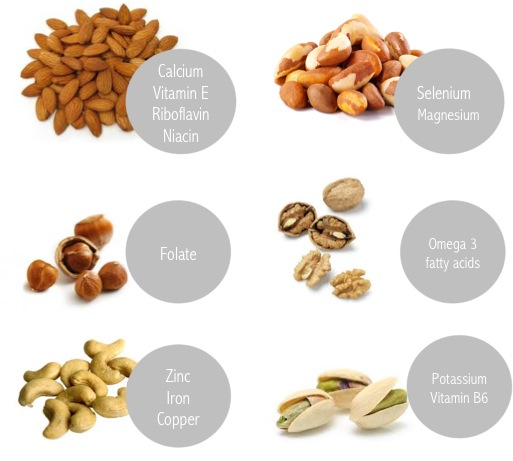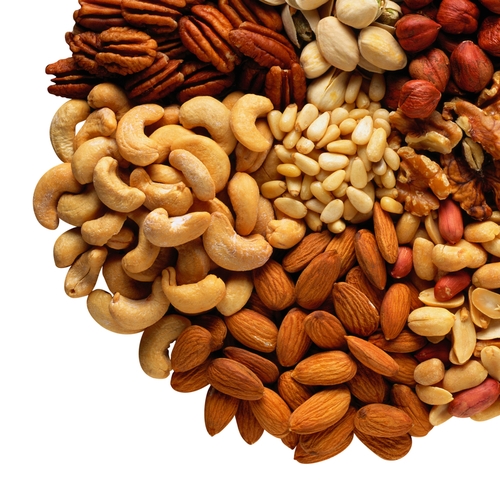
Which Nuts Are Nutritionally Best?
There are several varieties of nuts out there, and I get asked pretty often which is best. Each variety has different nutritional content to them. This will help determine which variety is best for you. But don’t be afraid to mix it up either! (Note: technically, a peanut is not a nut, but a legume. However, it will be included here regardless, as it is a great alternative for snacks/nut butters).
Nuts
Almonds (unroasted/unsalted)
1 oz. = 23 almonds
Fat: 14g (1g saturated fat)
Protein: 6 g
Fiber: 3.5g
Great source of calcium, iron, vitamin E, magnesium and phosphorous
Helps lower cholesterol, and is the most nutritionally-dense nut
Cashews (unroasted/unsalted)
1 oz. = 18 cashews
Fat: 13g (2.5g saturated fat)
Protein: 4.5g
Fiber: 1g
Great source of magnesium, phosphorous, copper and iron
Peanuts (unroasted/unsalted)
1 oz. = 28 peanuts
Fat: 14g (2g saturated fat)
Protein: 6.5g
Fiber: 2.5g
Great source of niacin, vitamin E, folate, magnesium, phosphorous and copper
Can help prevent muscle cramping due to potassium content
Walnuts
1 oz. = 14 halves
Fat: 17g (1g saturated fat)
Protein: 7g
Fiber: 2g
Great source of vitamin B6, magnesium, phosphorous, copper and selenium
Rich in Omega-3s to help prevent heart disease, inflammation, arthritis and depression
Nut Butters (in 2tbsp. servings)
Peanut Butter
Fat: 16g
Protein: 8g
Fiber: 2g
Almond Butter
Fat: 18g
Protein: 6.5g
Fiber: 3.5g
Cashew Butter
Fat: 16g
Protein: 5.5g
Fiber: 0.5g
Nut Allergy? Try Seeds/Seed Butters
Pumpkin Seeds (1 oz.)
Fat: 16g
Protein: 10g
Fiber: 5g
Sunflower Seeds (1 oz.)
Fat: 14g
Protein: 6g
Fiber: 3g




